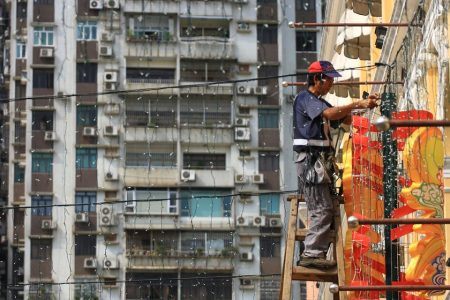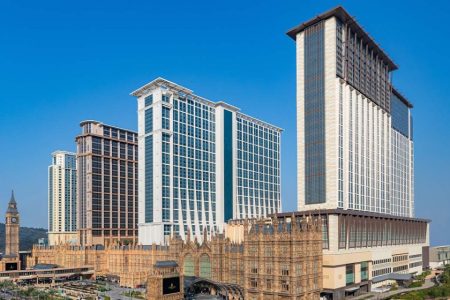Macau’s gross gaming receipts fell 9.6 per cent to 18.4 billion patacas (US$2.3 billion), completing a two-year decline, according to data from Macau’s Gaming Inspection and Coordination Bureau released Wednesday.
That followed a 9.5 per cent decrease in April and compares with the median estimate of an 8 per cent drop.
Macau has been struggling for two years as China’s economy slowed and President Xi Jinping’s corruption crackdown caused high-stakes gamblers to avoid the world’s largest gaming hub. Operators in the city, the only place in China where casinos are legal, have responded by shifting focus to tourists and recreational gamblers, with Wynn Macau Ltd. and Sands China Ltd. due to open new resorts later this year.
Wynn Palace, with 1,700 hotel rooms and a lake with gondolas and fountains, is expected to open in late July or early August while Sands China’s 3,000-room Parisian, featuring a half-size replica of the Eiffel Tower, is targeting to start operations in September.
The city’s government is planning stricter rules on the industry, including raising the entry threshold for gaming promoters, the middlemen who bring in VIP players and loan them money to gamble with.
Macau also banned phone betting in early May, a form of proxy betting favored by some high-stakes gamblers from China.
Macau is trying to diversify and reduce its reliance on gambling, a US$30 billion industry that is the source of about 80 per cent of the city’s tax revenue. The government wants to limit growth in the number of new gaming tables at the casinos, and raise the revenue contribution from their non-gambling features.
Wynn Palace, with 1,700 hotel rooms and a lake with gondolas and fountains, is expected to open in late July or early August while Sands China’s 3,000-room Parisian, featuring a half-size replica of the Eiffel Tower, is targeting to start operations in September.
At the end of May 36 casinos are operating in Macau.
(Macaunews/Bloomberg)






